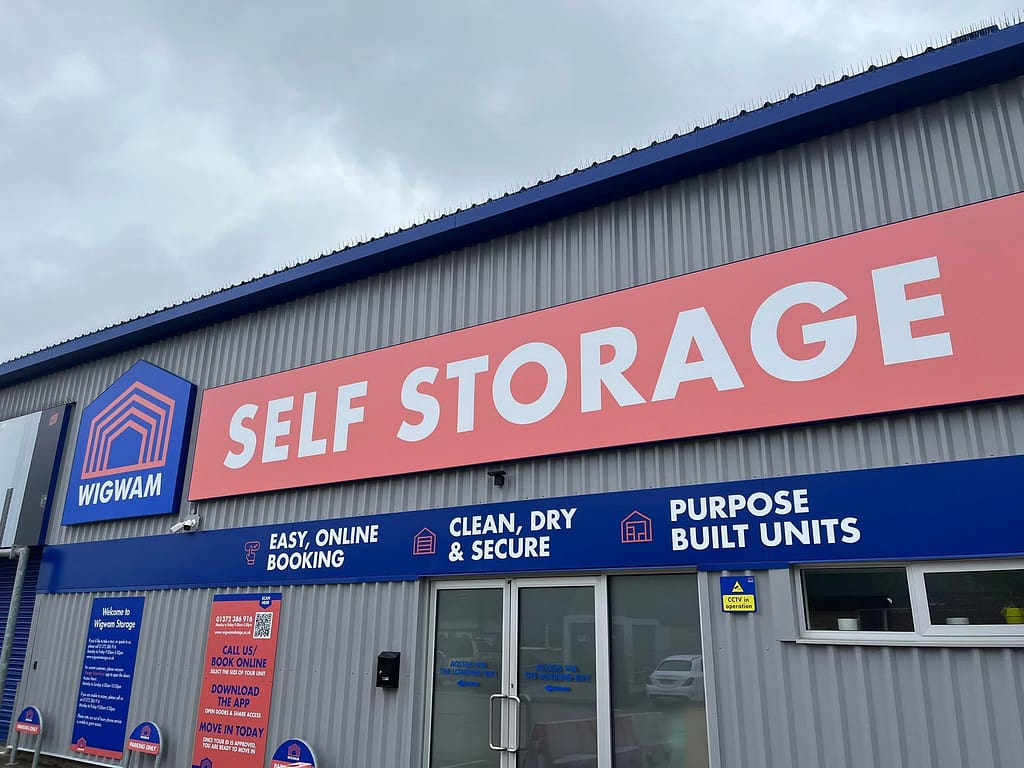Cities across the UK are undergoing a quiet but fundamental transformation. Population density is rising, living spaces are shrinking, and the commercial needs of small businesses, tradespeople and local creators continue to evolve at speed. These pressures are reshaping the way people use space, both at home and at work. One of the most significant shifts within this transition is the growing demand for micro self storage facilities in dense urban areas.
Micro self storage is not a trend on the fringes of the property sector. It is becoming a structural need in the modern hybrid city. These compact facilities, often located within repurposed retail units, office voids, undercrofts and mixed-use developments, are emerging as essential infrastructure for residents and businesses alike. They form part of the new logistics network of the city: a network that is small, agile, local, and able to support both personal and commercial needs.
In this article, we explore the drivers behind the rise of micro storage, the new behaviours shaping demand, and why landlords, developers and investors are increasingly turning to micro self storage as a way to unlock stable, high quality revenue growth from small and awkward urban spaces.
The New Urban Logistics Landscape
Urban storage has historically been seen as a personal utility. It was primarily a service designed to support individuals navigating major life events such as moving home, downsizing or undergoing renovations. That demand still exists and continues to grow. However, micro storage is now being pulled into a new commercial ecosystem that is driven by rapid fulfilment, flexible operations and reduced travel times.
Within the hybrid city, speed matters more than ever. Tradespeople, independent retailers, micro eCommerce brands and small logistics operators increasingly require localised space to store tools, materials, equipment and inventory. The old model of commuting to industrial estates at the city fringe no longer supports the way these businesses operate. Transport costs are rising, congestion charges are expanding, and job-by-job scheduling requires fast access to stock.
Micro self storage has therefore become the backbone of a new localised logistics layer. It offers businesses compact, secure, low cost space within the neighbourhoods they serve. For many, it replaces the need for expensive traditional warehousing or lock-ups miles away from their core customer base. It becomes the difference between responding to a client the same day, or losing the job entirely.
Why Tradespeople Need Micro Storage
Tradespeople often work within extremely tight catchments, especially in large cities such as London, Manchester and Birmingham. They navigate unpredictable schedules and have to carry a wide variety of tools and materials. Many tradespeople live in apartments or terraced houses with little secure storage space. Travelling to outer industrial estates to collect equipment adds unnecessary time and cost.
Micro facilities provide a simple solution. A unit of 25 to 75 square feet can function as a secure depot for tools, consumables, replacement parts and seasonal kit. Units are accessible outside typical retail hours, usually through secure digital access systems. Many micro facilities offer parking, CCTV, climate control and parcel acceptance services. This creates a low friction, highly practical workspace that supports the pace and mobility of modern trade jobs.
For independent electricians, plumbers, decorators, carpenters and similar specialists, micro storage has become a competitive advantage. It speeds up operations, reduces delays and improves daily workflow. It is part of the hybrid working model that blends home life, on-site work and a nearby satellite base.
The Growth of Local eCommerce and the Need for Micro Warehousing
Alongside trades, the UK has seen significant growth in small digital-first retailers. These brands often operate from home or through a hybrid model involving local fulfilment points. They require flexible space to store products, manage returns, pack orders and coordinate last-mile delivery.
Traditional warehouse leases do not serve this market. They are too large, too far away, too expensive, and too inflexible. Micro self storage offers the opposite experience. Units can be taken on short licences, expanded or downsized, and accessed seven days a week. Some operators support parcel handling, shelving installation, secure access systems and integrated business support services.
As eCommerce continues to fragment into thousands of small, highly specialised brands, micro storage will become essential infrastructure for urban fulfilment. It allows founders to remain close to customers, operate with low overheads, and scale quickly without the burden of long-term property commitments.
The Repositioning of Underused Urban Assets
The demand for micro self storage is also creating a new opportunity for landlords and developers. Cities are filled with small and awkward plots that no longer suit traditional commercial uses. These include vacant retail units, leftover spaces in commercial blocks, and remnants of car parks, loading bays and undercrofts. Individually they are too small for new build schemes and too constrained for many commercial tenants. Yet collectively they represent a significant pool of unused urban real estate.
Micro self storage fits these plots perfectly. It requires relatively low capex, minimal structural intervention, and often moves through planning with fewer objections than other uses. A micro facility can be launched within months rather than years. Operating costs are comparatively low, and the revenue model is stable due to consistent, broad based demand from both domestic and commercial users.
For developers and property owners, micro storage is becoming one of the most reliable ways to monetise underused floor space. It creates a secure income stream that is resilient to economic cycles, given that demand for storage tends to remain strong even during downturns. It also supports the regeneration of neighbourhoods by reducing vacancy and returning previously inactive units to productive use.

Compact micro self storage unit developed from a redundant trade counter space.
Micro Storage as Part of the Hybrid City Framework
The hybrid city is characterised by the blending of personal, professional and commercial activities within small geographic areas. Residents work from home more frequently, operate side businesses, receive online deliveries at all hours, and expect everyday services to be local and immediate. Businesses rely on small, distributed nodes of space rather than centralised hubs. Everyday movement is shifting from long commutes to short, frequent trips within a limited radius.
According to the Self Storage Association, micro self storage sits at the centre of this shift. It provides the physical buffer space that growing cities lack. It supports mobility, entrepreneurial activity, flexible working patterns and the increasing need for on-demand fulfilment. It becomes a highly practical, low profile building block of the modern urban economy.
As UK cities continue to densify, the need for compact, affordable and accessible storage will only increase. Micro facilities will keep expanding into mixed use developments, transport-adjacent plots, retail conversion sites and neighbourhood centres. They will evolve from being a convenience to being an essential part of how cities function.
For landowners, developers and property owners, micro self storage represents one of the most adaptable and commercially secure opportunities within the urban property landscape. The combination of consistent customer demand, flexible build options and stable income potential makes it an attractive way to enhance the value of underutilised assets.
If you would like to explore whether your land or property is suitable for a micro storage facility, or if you want expert support in planning, marketing, pricing and operating a site, Wigwam Storage Management can help. Our team specialises in designing and operating highly effective storage facilities across the UK, including micro units in dense city locations.
To discuss your site or development opportunity, get in touch with Wigwam Storage Management today by emailing [email protected].
Check out What to Do with Underperforming Commercial Sites in 2025 if you enjoyed this article

